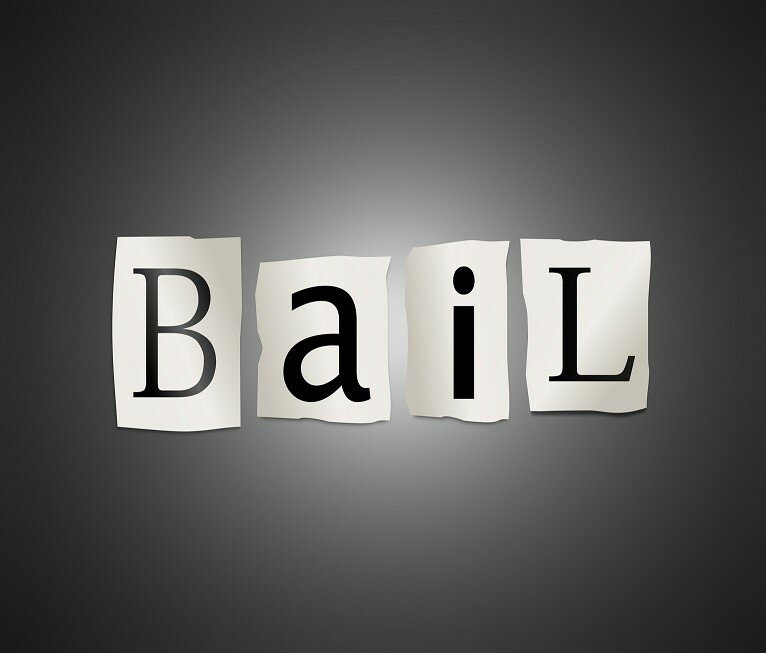Do I Need a Lawyer When I'm Charged with a Crime?
Defendants charged with crimes are almost always best served by obtaining a lawyer. In fact, most criminal defendants are represented by a lawyer, especially when jail or a prison sentence is a possible result. It is very difficult for a person to competently handle his or her own criminal case. While there are no firm statistics on how many people choose to represent themselves in criminal cases, estimates range well below 1%.
You Can't Find Everything You Need in a Book
Self-representation is made difficult in part by the typical gulf between paper and practice in criminal cases. In books you can find laws that define crimes, fix punishments for their violation, and mandate courtroom procedures. Take the time and trouble to read these books, defendants might think, and they'll understand the system. Alas, the practice of criminal law can't be understood by reading books alone, even this one. To experienced criminal defense attorneys, the criminal law appears much the same as a droplet of water appears to a biologist under a microscope—a teeming world with life forms and molecules interacting unpredictably.
The Power of the Prosecutor
For example, prosecutorial discretion—the power of prosecutors to decide whether to file criminal charges, and what charges to file— determines much of what actually happens in the criminal courts. The particular prosecutor who has the power to make decisions, and when those decisions are made, can greatly affect the outcome of a case. An act that looks on paper to constitute one specific crime can be recast as a variety of other crimes, some more and others less serious. What in a statute book appears to be a fixed sentence for a particular crime can be negotiated into a variety of alternatives.
Community Pressures
No one should underestimate the role that community pressures, values, and politics plays in many criminal cases. Judges must stand for re-election, prosecutors want to be successful, and police expect that the crime reports they bring to the prosecutor will result in charged cases. The public may be fired up about certain crimes and expect the system to "get tough" on people arrested for them. In a perfect world, the system would be immune from such pressures, but this is simply not what happens. Only someone who's familiar with the local scene can know how these pressures might affect your case, and how to work within them.
In other words, the world of criminal law is vast, hidden, and shifting, and defendants enter it alone at their peril. At the very least, most self-represented defendants should arrange for a lawyer to be a legal coach and consult with their coaches as needed.
What Will an Attorney Do for Me?
The truth is, no matter how smart or well educated you are, the criminal justice system makes it virtually impossible to do a competent job of representing yourself. Each criminal case is unique, and only a specialist who is experienced in assessing the particulars of a case—and in dealing with the many variables that come up in every case—can provide the type of representation that every criminal defendant needs to receive if justice is to be done.
Criminal defense lawyers do much more than simply question witnesses in court. For example, defense lawyers:
- Negotiate "deals" with prosecutors, often arranging for reduced charges and lesser sentences. By contrast, prosecutors may be uncooperative with self-represented defendants.
- Formulate sentencing programs tailored to a client's specific needs, often helping defendants avoid future brushes with the criminal justice system.
- Help defendants cope with the feelings of fear, embarrassment, reduced self-esteem, and anxiety that criminal charges tend to produce in many people.
- Provide defendants with a reality check—a knowledgeable, objective perspective on their situation and what is likely to happen should their cases go to trial. This perspective is vital for defendants trying to decide whether to accept a prosecutor's offered plea bargain.
- Are familiar with important legal rules that people representing themselves would find almost impossible to locate on their own, because many criminal law rules are hidden away in court interpretations of federal and state statutes and constitutions. For example, understanding what may constitute an unreasonable search and seizure often requires familiarity with a vast array of state and federal appellate court opinions.
- Are familiar with local court customs and procedures that are not written down anywhere. For example, a defense lawyer may know which prosecutor has the real authority to settle a case and what kinds of arguments are likely to appeal to that prosecutor.
- Understand the possible hidden costs of pleading guilty that a self-represented person might never think about.
- Spend time on a case that a defendant cannot afford to spend. Defendants who can afford to hire a lawyer usually have jobs, and therefore lack the time (and energy) to devote to such time-consuming activities as gathering and examining documents, doing legal research, and talking to witnesses.
- Gather information from prosecution witnesses. Witnesses often fear people accused of crimes and therefore refuse to speak to people representing themselves. Witnesses are more likely to talk to defense attorneys or their investigators.
- Hire and manage investigators. Investigators may be able to believably impeach (contradict) prosecution witnesses who embellish their stories at trial. By contrast, it is far less effective for a defendant to testify that "the prosecution witness told me something different before trial."
This article was excerpted from The Criminal Law Handbook, by Paul Bergman, J.D., and Sara J. Berman, J.D.
 If you watch much television, you've probably seen variations of this scene dozens of times: a judge bangs a gavel and announces, "Bail is set at $100,000." The defendant looks despondent as he consults with his lawyers. But somehow he ends up free while waiting for his trial to begin. One hundred thousand dollars is a lot of money to come up with -- how did he afford it? And what did it mean when the defense attorney claimed his client was not a "flight risk"?
If you watch much television, you've probably seen variations of this scene dozens of times: a judge bangs a gavel and announces, "Bail is set at $100,000." The defendant looks despondent as he consults with his lawyers. But somehow he ends up free while waiting for his trial to begin. One hundred thousand dollars is a lot of money to come up with -- how did he afford it? And what did it mean when the defense attorney claimed his client was not a "flight risk"? If you found yourself pulled over or at a click it or ticket check point, whether it is for DUI, Speeding, lack on insurance, or expired registration and find yourself in legal trouble. Start your defense by getting the right legal information. John W. Cowling is a defense attorney in Loxley, Baldwin County, Alabama. He will consult with you and go over all your options, then protect your rights in court. So If this Memorial Day Weekend didn't go as you had planned, and you got in trouble with the law, do yourself a favor and call the law office of John W. Cowling today 251-947-7667
If you found yourself pulled over or at a click it or ticket check point, whether it is for DUI, Speeding, lack on insurance, or expired registration and find yourself in legal trouble. Start your defense by getting the right legal information. John W. Cowling is a defense attorney in Loxley, Baldwin County, Alabama. He will consult with you and go over all your options, then protect your rights in court. So If this Memorial Day Weekend didn't go as you had planned, and you got in trouble with the law, do yourself a favor and call the law office of John W. Cowling today 251-947-7667 Fourth of July DUI Arrest - Fight Your Charges
Fourth of July DUI Arrest - Fight Your Charges